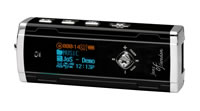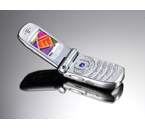Napster will have just acquired another 50,000 tracks for their summer launch in the UK in a new deal with the Association of Independent Music (AIM). AIM is a UK body of 800 independent music companies, and Napster have licensed tracks from 50 of them. US Napster users will have access to the music too, once it has been uploaded.
“Napster creates the ultimate community experience for music fans and the variety, quality and originality of music from the independent UK sector is a vital to delivering this experience,” said Napster president Brad Duea. “The Association of Independent Music has shown great foresight in joining forces with Napster at this time and has underlined its reputation as an influential player on the international music scene.”
“Napster is going to make a big difference to music fans in the UK. At last we have a legitimate service from the world’s leading online brand, which offers flexibility in streaming and downloading to music fans. It also takes our music to fans around the world, confirming the promise that the internet can deliver a global business to independent artists and record companies,” said AIM chairman and chief executive Alison Wenham.
Artists made available through the deal include darlings of Hoxtonites such as Coldcut and Kruder & Dorfmeister. Billy Bragg will also be available.
Wippit, a subscription-based music service previously reported here has also just licensed tracks from Sony Music for distribution in the UK and Ireland. Sony Music’s artists include Bruce Springsteen and Beyonce.
It looks like the battle for legal music downloads is hotting up with Napster and iTunes launching almost simultaneously in the next few weeks.
 The latest MP3 Flash-memory music player from Jens of Sweden has just been announced (so recently that they don’t have English details available). The stylish devices has all you would expect from a mini-MP3 player, currently up to 512Mb of storage, record function dictaphone and FM-radio. Amazingly this little beauty weighs the same as eight sheets of A4 paper.
The latest MP3 Flash-memory music player from Jens of Sweden has just been announced (so recently that they don’t have English details available). The stylish devices has all you would expect from a mini-MP3 player, currently up to 512Mb of storage, record function dictaphone and FM-radio. Amazingly this little beauty weighs the same as eight sheets of A4 paper. As well as taking advantage of the enhanced resolution and colours that are constantly evolving with each iteration of handsets released, the less than catching named “Vodafone live!TM with 3G” will speed the delivery of content and widely-enable the streaming of audio and video content. They, like rival operator 3, are hoping that high bandwidth video calling and messaging will grab the imagination of their users, bringing them far higher revenues that standard SMS text messaging currently do.
As well as taking advantage of the enhanced resolution and colours that are constantly evolving with each iteration of handsets released, the less than catching named “Vodafone live!TM with 3G” will speed the delivery of content and widely-enable the streaming of audio and video content. They, like rival operator 3, are hoping that high bandwidth video calling and messaging will grab the imagination of their users, bringing them far higher revenues that standard SMS text messaging currently do. The number of Vodafone-approved handsets available will increase. Following the Z105 will be the Sony Ericsson Z1010, a clamshell-design with two displays and two cameras that was announced over a year ago. Availability of Nokia handsets was not mentioned.
The number of Vodafone-approved handsets available will increase. Following the Z105 will be the Sony Ericsson Z1010, a clamshell-design with two displays and two cameras that was announced over a year ago. Availability of Nokia handsets was not mentioned.